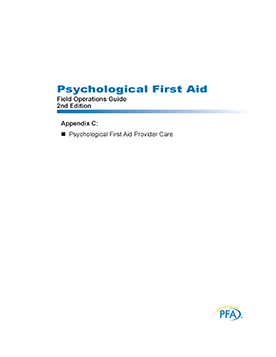
Psychological First Aid (PFA) Field Operations Guide Appendix C
Is the third appendix in the Psychological First Aid First Operations Guide (PFA). This appendix offers information on PFA provider care.
The following resources on child trauma were developed by the NCTSN. To find a specific topic or resource, enter keywords in the search box, or filter by resource type, trauma type, language, or audience.

Is the third appendix in the Psychological First Aid First Operations Guide (PFA). This appendix offers information on PFA provider care.
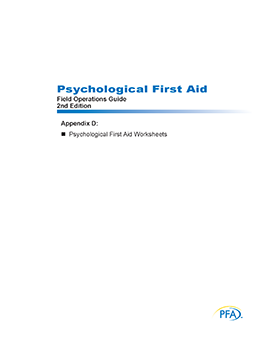
Is the fourth appendix for the Psychological First Aid Field Operations Guide (PFA). This appendix includes different PFA provider worksheets, such as survivor current needs and the PFA service components provided.
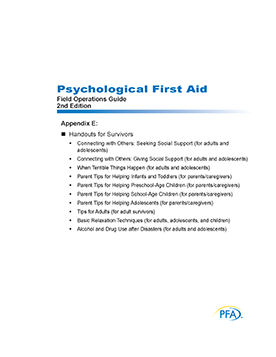
Is the fifth appendix for the Psychological First Aid Field Operations Guide (PFA).
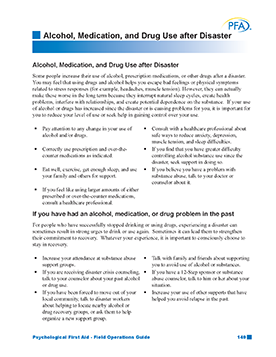
Is a handout from Psychological First Aid Field Operations Guide (PFA). This handout offers information on alcohol, medication, and drug use after a disaster, as well as tips for those who have had an alcohol or drug problem in the past.
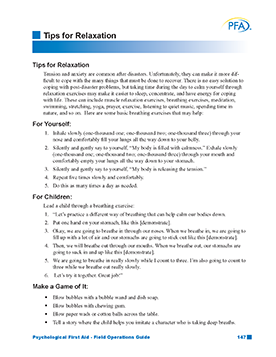
Is a handout from Psychological First Aid Field Operations Guide (PFA). This handout offers brief tips for relaxation for yourself, your children, and ways to make a game out of it.

Is a handout from Psychological First Aid Field Operations Guide (PFA).
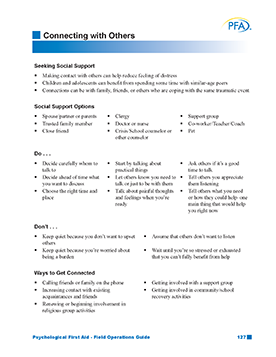
Is a handout from Psychological First Aid Field Operations Guide (PFA). This handout offers information to survivors on seeking social support, social support options, what survivors can do, what survivors should not do, and ways to get connected.
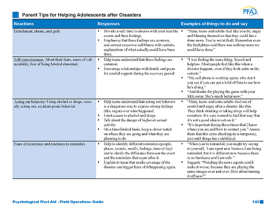
Is a handout from Psychological First Aid Field Operations Guide (PFA). This handout provides parents with common reactions after a disaster, ways to respond to those reactions, and examples of things you can say to your adolescent.
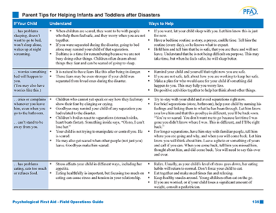
Is a handout from Psychological First Aid Field Operations Guide (PFA). This handout provides parents with common reactions after a disaster, ways to respond to those reactions, and examples of things you can say to your infants or toddlers.
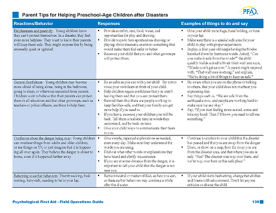
Is a handout from Psychological First Aid Field Operations Guide (PFA). This handout provides parents with common reactions after a disaster, ways to respond to those reactions, and examples of things you can say to your preschool-age child.
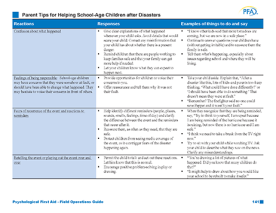
Is a handout from Psychological First Aid Field Operations Guide (PFA). This handout provides parents with common reactions after a disaster, ways to respond to those reactions, and examples of things you can say to your school-age child.
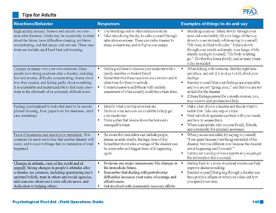
Is a handout from Psychological First Aid Field Operations Guide (PFA). This handout provides people with common reactions after a disaster, ways to respond to those reactions, and examples of things you can say to another adult.